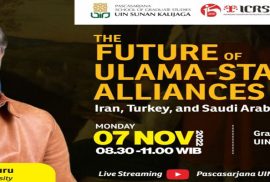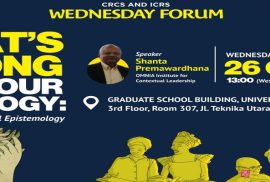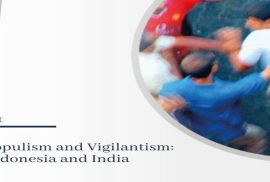Slideshow
Written by Krisharyanto Umbu Deta – CRCS UGM Student
Translated by Athanasia Safitri – ICRS Doctoral Student
Freedom of Religion or Belief (FoRB), as part of the Human Rights (HR) value, is often seen as an advocacy tool oriented for the minority groups. However, this view tends to depreciate FoRB significance for a broader community, not just any particular group. In the Public Lecture International Conference on Religion and Human Rights, July 18, 2022, entitled “The Contribution of Freedom of Religion or Belief to Societal Peace”, Heiner Bielefeldt – who had served as the United Nations Special Rapporteur on Freedom of Religion or Belief 2010-2016 – raised one interesting perspective on FoRB which has a potential contribution in bringing societal peace into life. This point of view is vital to review the interconnection between issues of peace and freedom which often do not go hand in hand. In the name of peace, harmony and order, violations of human rights and freedoms of the citizens may occur. For this reason, the paper re-examines Bielefeldt’s main ideas regarding the contribution of the FoRB to peace-building projects that are oriented towards genuine peace that is “noisy” instead of “tranquil”.
Written by Maurisa Zinira
Right-wing populism continues to show signs in various countries. By adhering to claims of privilege as the dominant group, they further their politics by mobilizing hatred against minorities. They don’t even hesitate to use vigilante methods to set up domination. Using the extra-legal mechanism for politics, right-wing populism perpetuates the chain of violence that threatens democracy. The micro picture of the relationship between right-wing populism and vigilantism is discussed remarkably in the 8th Reading in Social Science (RISOS) by reviewing Sana Jafrey’s article entitled “Right Wing Populism and Vigilante Violence in Indonesia” that was published in the journal Studies in Comparative International Development (2021) 56:223–249. The forum was held on 29 August 2022 by inviting two researchers in the same study, Laurens Bakker from the University of Amsterdam and Iqbal Ahnaf from Center for Religious and Cross-Cultural Studies, UGM.










